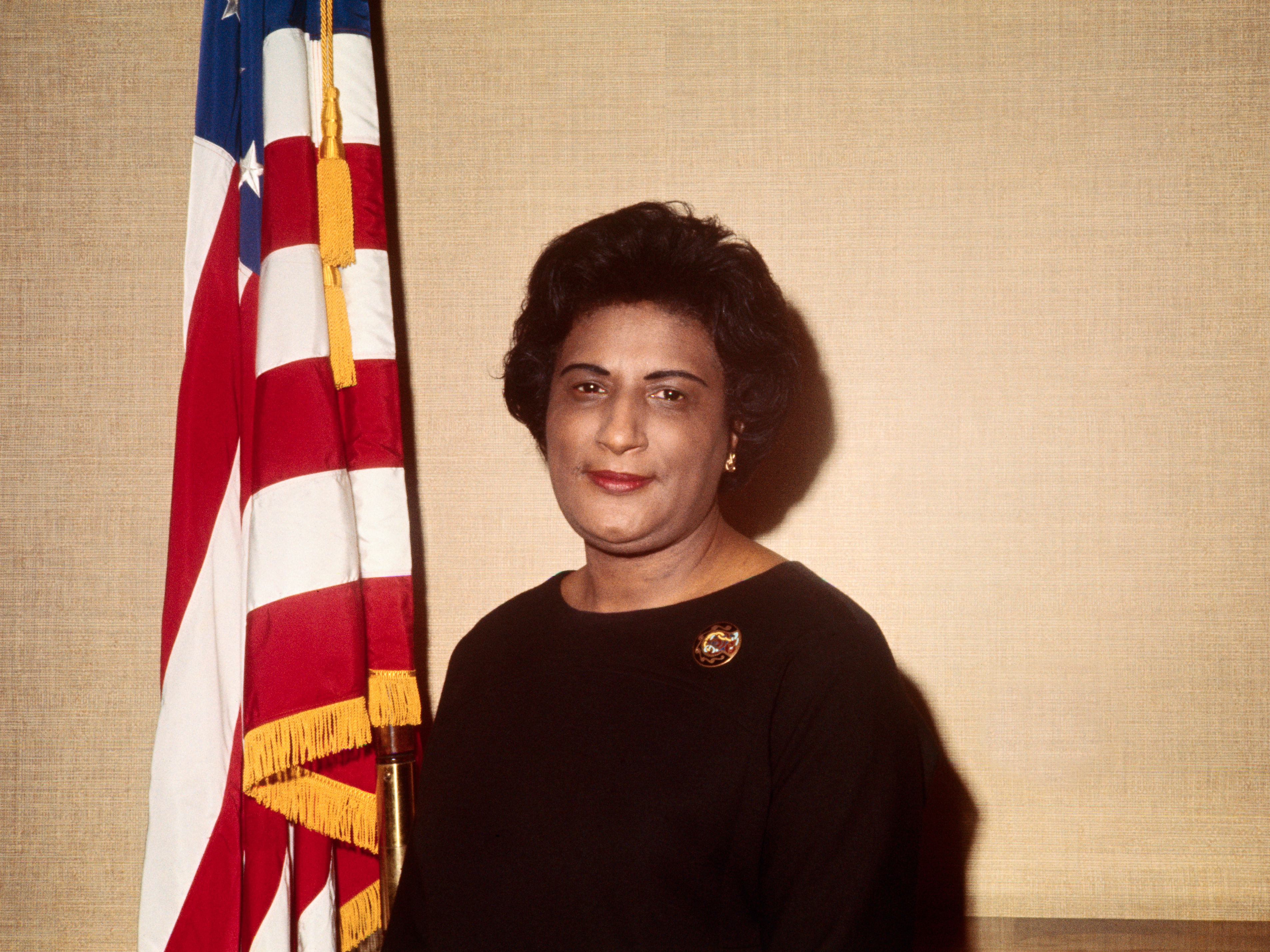- History books are filled with stories about impactful men of color like Malcolm X, Fredrick Douglas, and Martin Luther King Jr.
- There are many black women who have made significant contributions as well, but their stories are often not taught in schools.
- Bessie Coleman was the first African-American woman to get her pilot’s license.
- Althea Gibson broke barriers in tennis.
When you think about important figures in black history, names like Dr. Martin Luther King Jr. and Frederick Douglass likely come to mind. But there’s no denying that black women have played a powerful and important role in history, though you may not hear their stories as often. Black women have been breaking down barriers and shattering stereotypes in the fields of education, sports, politics, and more for generations.
Below, we’ve listed some black women from history that you may not have learned about in school, but should know more about.
Bessie Coleman was the first African-American woman to hold a pilot’s license.
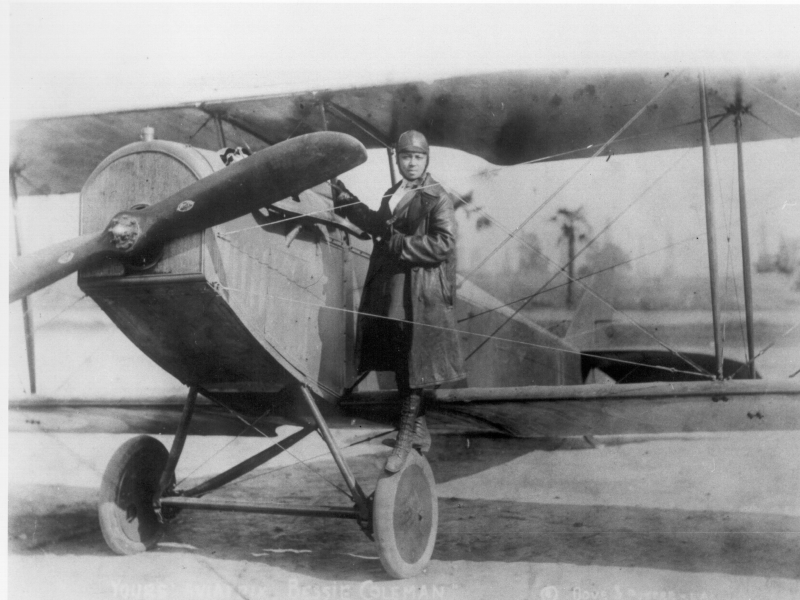
Born in 1892, Bessie Coleman always knew she wanted to fly. Although she was rejected by aviation schools in the United States, Coleman never gave up on her dream to become a pilot.
She learned French and was accepted at a flight school in France. In 1921, Coleman graduated from the Fédération Aéronautique Internationale and secured her place in history as the first African-American woman to receive a pilot’s license, though some have reported she was the first African-American person period to receive such a license.
She was also the first Native-American woman to do so. (Her father, George Coleman, was Native American and black.)
When she returned to the United States, she used her knowledge to become a stunt pilot and perform at air shows. In 1922, Coleman became the first African-American woman to make a public flight. Coleman entertained audiences with her aerial stunts until her death in 1926, from an accident during a rehearsal for an aerial show.
Wilma Rudolph ran off with three gold medals at the 1960 Olympics.

Born into a family of 22 children and having polio and scarlet fever as a child, Wilma Rudolph later became a world-class athlete.
Rudolph made history at the 1960 Olympic Games in Rome, as the first American woman to win three track-and-field gold medals in a single Olympic games. Rudolph earned her medals in the 100m, 200m, and 4X100m relay events.
She went on to become a spokesperson for a baking company and a movie studio. She was inducted into the US Olympic Hall of Fame in 1983.
Shirley Chisholm made political history as the first black woman elected to the US Congress.
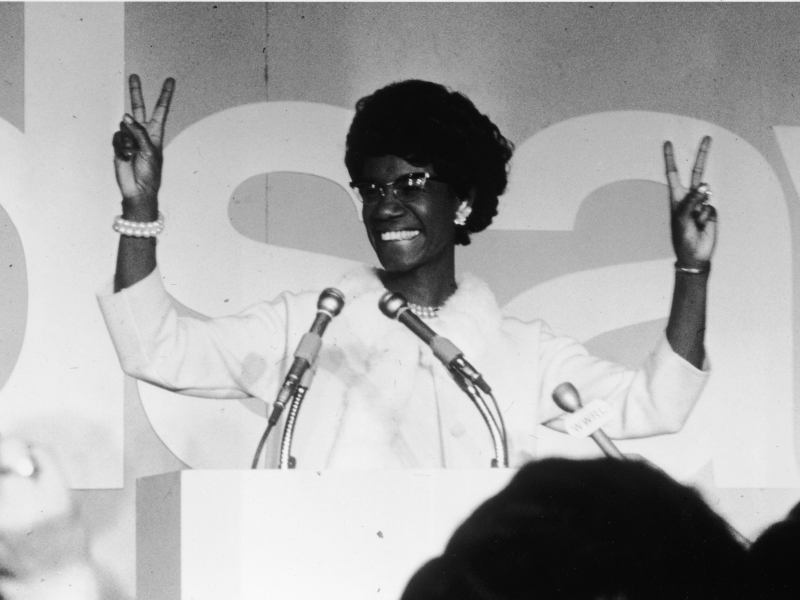
Educator and civil rights advocate, Shirley Chisholm dedicated her life to helping the people in her community. In 1968, Chisholm was elected to represent her Brooklyn district in the United States House of Representatives, becoming the first black woman to serve in US Congress. Chisholm served seven terms in the House, where she was a dedicated advocate for education and employment opportunities for people of color.
In 1972, Chisholm sought the Democratic nomination for president and became the first black woman to seek a major political party's nomination in a presidential campaign. She ultimately lost the democratic nomination to Sen. George McGovern who then lost the presidency to President Richard Nixon.
But her impact is still being felt in 2019. When Sen. Kamala Harris announced her run for president earlier this year, many took note that her logo and campaign materials seemed to pay tribute to Chisolm's.
Mary McLeod Bethune was a trailblazer for African-American people in education by opening her own school.
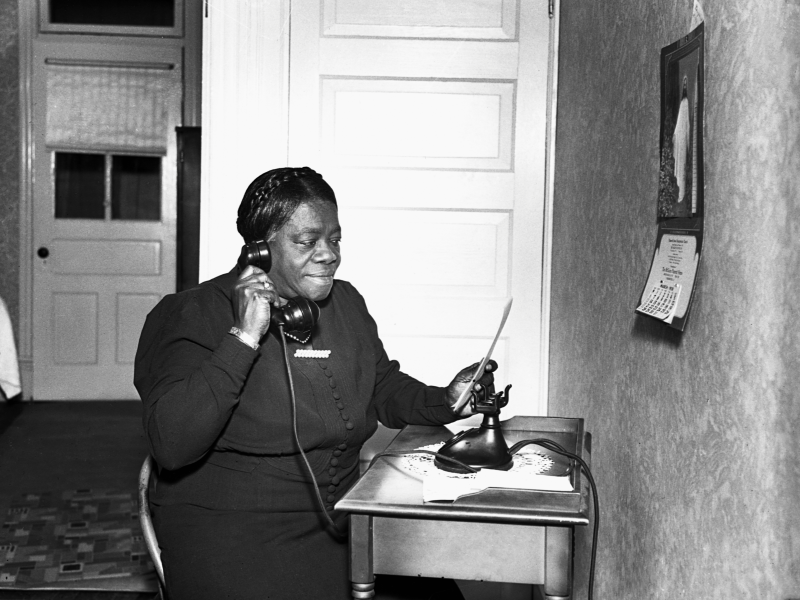
Mary McLeod Bethune was a dedicated educator and advocate for civil rights. In a time when educational options for African-American people were limited, Bethune founded the Daytona Normal and Industrial Institute in 1904, a school for black girls. In 1923, the school merged with the all-male Cookman Institute and in 1929 (though some say it was 1925), it was officially renamed Bethune-Cookman College and today is known as Bethune-Cookman University.
In addition to her work in education, Bethune also organized voter registration campaigns, as women gained the right to vote. In 1936, Bethune was the highest-ranking African-American woman in government as the director of Negro Affairs of the National Youth Administration.
Althea Gibson broke barriers in tennis.

About 43 years before Serena Williams won the 1999 US Open, there was Althea Gibson.
In 1949, Gibson attempted to enter into the United States Lawn Tennis Association's championship in Forest Hills, New York. When she wasn't invited to compete in any qualifiers, fellow player Alice Marble wrote a letter on her behalf to American Lawn Tennis magazine, urging members to let her compete.
In 1950 she became the first African-American player to compete at the US Nationals. Though she lost her first year, she later became the first African-American player to win that tournament in 1957. She was also the first to win a singles title at Wimbledon that same year.
In 1957 and 1958, Gibson won consecutive titles at both Wimbledon and the US Nationals.
Phillis Wheatley was the first African-American author to publish a book of poetry.
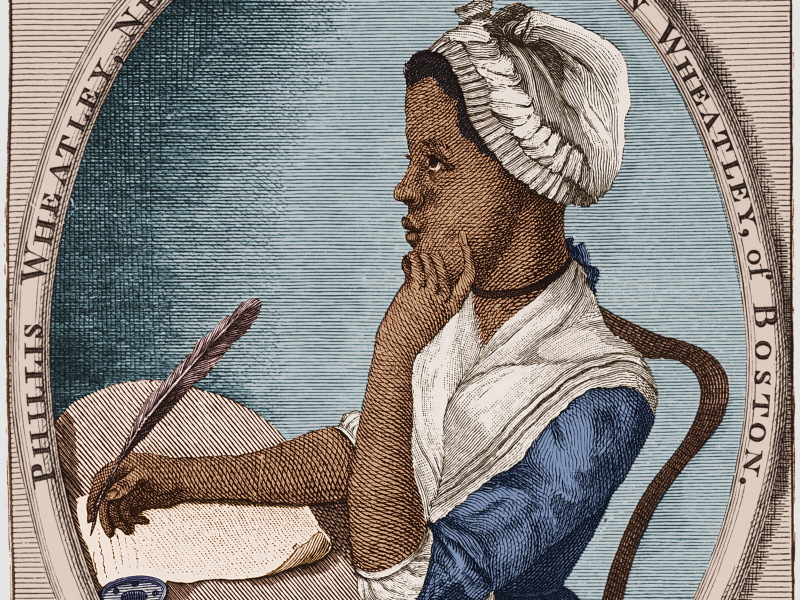
Wheatley was born around 1753 in West Africa and brought to Boston in 1761. She was educated by the Boston family, the Wheatleys, who enslaved her. She studied literature, including John Milton and Homer, and eventually began to write her own poetry.
Her first poem was likely published in December 1767. She gained national acclaim in 1770 for "An Elegiac Poem, on the Death of that Celebrated Divine, and Eminent Servant of Jesus Christ, the Reverend and Learned George Whitefield" which was published in the US and also later published in London.
In 1773, Wheatley was the first African-American poet to publish a book of her work. It was called "Poems on Various Subjects, Religious and Moral." She went on to publish poems such as "On Being Brought from Africa to America" and "On Virtue."
Janet Collins became the first African-American artist to perform full-time at the Met.

After a stint dancing on Broadway and in variety shows, including winning Dance magazine's "Debutante of the season" award in 1949, Collins became the first African-American artist to perform full-time with the Metropolitan Opera in 1951. There she held roles in operas such as "Aida" and "Carmen."
Although she was often received well in New York, Collins was often replaced by understudies when the company traveled through the South because of a race laws.
Collins also taught at prestigious dance schools including Balanchine's School of American Ballet. She toured the US and Canada in 1954 in solo dance concerts after leaving the Met.
Mamie Johnson was a pitcher for the Indianapolis Clowns.

Born in 1935, Mamie Johnson grew up playing baseball in her South Carolina hometown. At age 17, she traveled to Virginia in hopes of landing a spot on the All-American Girl Professional Baseball team, though she was not allowed to try out due to the color of her skin.
Determined to play the game she loved, Johnson went on to become one of three women to play baseball in the Negro Leagues in 1953 at 17, and the only woman to pitch. She played for the Indianapolis Clowns.
Despite being one of few women, Johnson later told MLB that she was treated very well by the men in the league. "I was pleased to be treated like a lady at all times. I can say I had 26 brothers, and they were so nice."
Johnson played for the Clowns for three seasons before to have a career as a nurse.
In 2008, the MLB honored Johnson along with other African-American players who were excluded from the league with a ceremonial draft. Johnson was drafted by the Washington Nationals. She died in 2017.
Ida B Wells' investigative journalism looked to shine a spotlight on hate crimes.

Ida B. Wells was born into slavery in Mississippi in 1862, during the Civil War. After three friends were lynched, Wells, who was a journalist and former schoolteacher, worked to bring increased awareness to these brutal, racially-motivated crimes against black Americans.
Wells became part-owner of the Memphis Free Speech and published her writings on her investigation in various pamphlets and newspaper columns, exploring lynchings and racism in America, as well as encouraging boycotts to protest racism and racially motivated violence. Her writings caused so much outrage that she was driven out of Memphis and moved to Chicago.
Wells was also an outspoken advocate for women's rights issues, including suffrage. She was a founder of the National Association of Colored Women's Club and she and Belle Squire co-founded the Alpha Suffrage Club.
Flo Kennedy was a dedicated advocate for women's rights.

Flo Kennedy was a lawyer and civil rights advocate who worked to improve conditions for American women generally, and especially black women. She attended Columbia University enrolled in pre-law studies. Though she had outstanding grades, she was denied by law schools because she was a woman. After threatening to sue, she was admitted by Columbia's law school in 1948 and was the only black person in her class.
She was a founding member of the Feminist Party, which nominated Shirley Chisholm for president in 1972.
Kennedy was a colleague of prominent feminist, Gloria Steinem who called her an "outrageous, imaginative, humorous and witty spokeswoman for social justice." Kennedy was an outspoken supporter of women's reproductive rights.
She helped organize a protest of the Miss America pageant in 1968, as well as a "pee-in" on Harvard Yard in 1973 in protest of the lack of women's bathrooms on campus.
For Constance Baker Motley, a run-in with discrimination inspired her legal career.

Motley earned her law degree, from the Columbia University School of Law and in 1945, served as a law clerk for Thurgood Marshall. She worked as a civil rights advocate and worked at the NAACP legal defense fund. She worked as a legal strategist, representing Rev. Martin Luther King Jr. and other freedom riders and working on civil rights cases including the Montgomery bus boycott.
Motley made history in 1964 as the first black woman ever elected to the New York State Senate and as the first African-American woman to be appointed as a federal judge in 1966.
Rebecca Lee Crumpler was instrumental in issuing medical treatment to those who couldn't afford it.
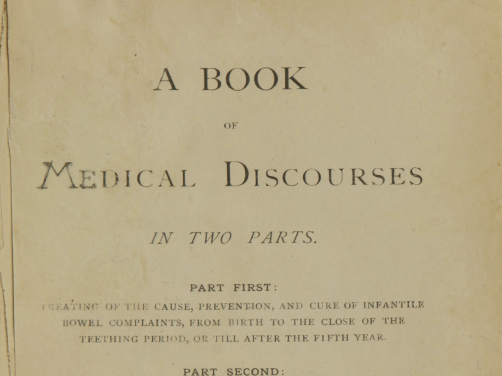
At a time when very few women worked outside of the home, Dr. Rebecca Lee Crumpler was saving lives. Crumpler earned her M.D. degree from New England Female Medical College in 1864 and was the only African-American person to earn a degree from the institution. Crumpler became the first African-American female physician in the United States.
Her practice was primarily focused on serving low-income women and children in Boston and Richmond, Virginia.
In 1883, Crumpler became the first black physician to publish a medical text, "A Book of Medical Discourses in Two Parts."
Ruby Bridges desegregated a public school in the south.

Ruby Bridges became a civil-rights activist when she was only 6 years old. Although the Supreme Court ruled against segregation in public schools in the Brown v. Board of Education decision, many all-white schools in the South were still not completely on board with welcoming black students.
Bridges passed the entrance exam to attend an all-white elementary school, William Frantz Elementary School, in her New Orleans neighborhood, and in 1960, she became the first African-American child to desegregate the all-white elementary school in the south.
Federal marshals escorted Bridges and her mother past angry protesters each day. Bridges wrote two books about her experiences and received the Carter G. Woodson Book Award.
Visit INSIDER's homepage for more.
